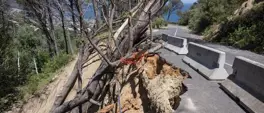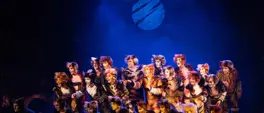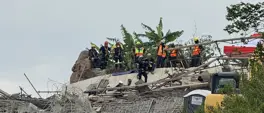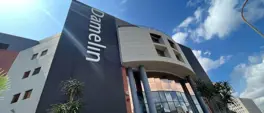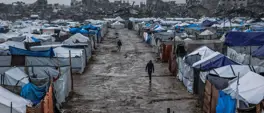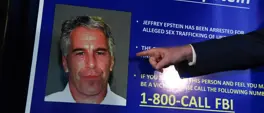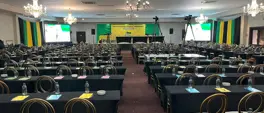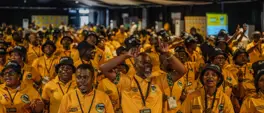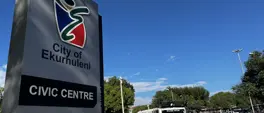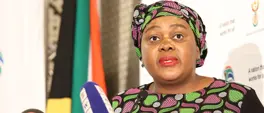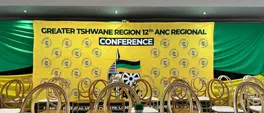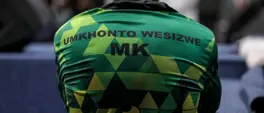Elections 2024: Unsafe drinking water, crime, decent housing some of the burning issues for GP residents
Kgomotso Modise
9 April 2024 | 10:47Eyewitness News' Kgomotso Modise looks at the state of Gauteng ahead of the looming elections.
JOHANNESBURG - Gauteng’s story is of residents who say they feel unseen, forgotten and abandoned.
While the challenges in parts of the province are unique - from the battle for township formalisation to the fear of dying from contaminated water, some problems are strikingly similar to other parts of the province and the rest of South Africa.
The people of Ebumnandini - in the west of Johannesburg have spent the last 24 years waiting in anticipation for the day that their township will be proclaimed by the government, which promises to be the answer to their problem.
They were moved from a piece of land they occupied in Vlakfontein, to the settlement in Tshepisong West - with government promising to formalise it.
Peter Mkhwanazi, a community leader, has been living in the settlement in Tshepisong West for over two decades.
"When the elections approach, you start hearing all the promises of this place being proclaimed, it's like a sermon, a great commission for the people of Tshepisong."
With the proclamation, comes development - roads, sewage systems, schools, clinics and police stations, services that the people of Ebumnandini can only dream of having access to.
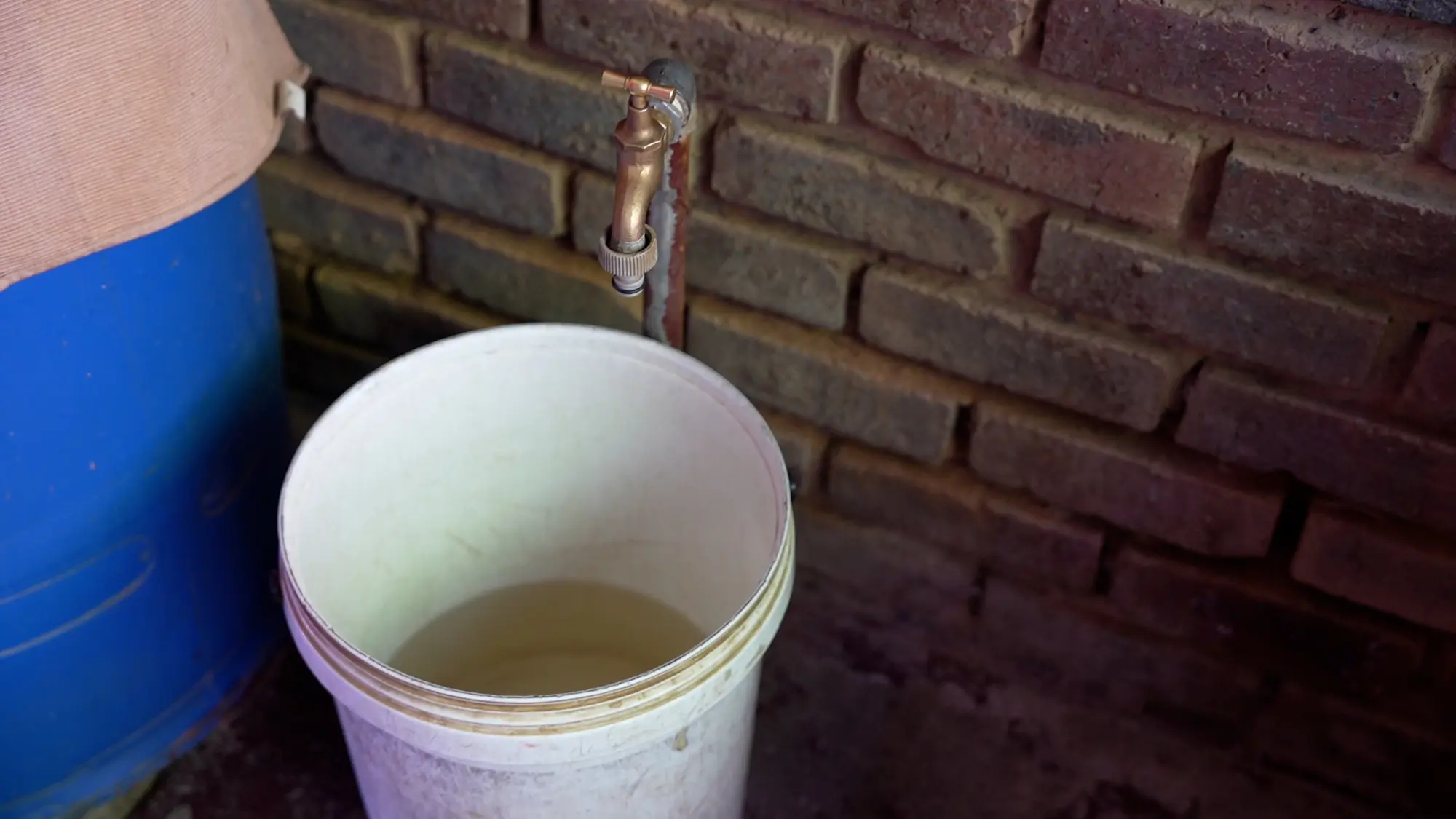
Collecting water in the Ebumnandini informal settlement in Tshepisong. Picture: Xanderleigh Dookey/Eyewitness News
UNSAFE WATER
Like in Ebumnandini, where water is scarce, almost a year since the cholera outbreak, the Hammanskraal water crisis continues to torment locals. Tap water cannot be consumed as it sometimes bears a stench, and reflects a brownish/yellowish colour.
This is why the founder of Little Darling’s creche, Mamoruti Damaris Malebye, has decided to add bottled water to the stationery list.
"Every month end each parent must bring 10 litres of bottled water. We check the water – it must be sealed. We don’t accept the refilled water because they could be filling it with tap water. It must be new sealed water."
Some locals have spotted opportunities in the crises, setting up establishments where purified water is sold. This is a new booming business in Hammanskraal, with several structures that resemble spaza shops popping up, where bottled water is sold.
DUMPING ON THE ANCESTORS
There are more illegal dumping sites than schools in the Vaal, with the stench of raw sewage and garbage filling the air.
Cemeteries have become a popular site.
"We tend to call these guys in this community who use drugs to collect our waste and go dispose of it because the municipality has not collected it for weeks. These guys then just dump at this cemetery because it's near and easy for them."
Some who live near the Vuka cemetery in Sharpeville have expressed pain and despondence about what has become of the graveyard.
"This is where our ancestors are. As black people, this is very important to us. We are tired, we fight and fight but government does nothing. Why don’t they serve the people? Why don’t they collect the garbage as they should?"
CITY OF GOLD NO MORE
Johannesburg, the city of hopes and dreams has been left to ruins as crime, filth and lawlessness festers.
Hijacked buildings, sex work - sometimes by minors and drug users - have become familiar sights in the city. But some have chosen to brave these challenges and keep their businesses and lives in the city they so love.
Carmen and Saul Bamberger run a luxury furniture store, Miller’s Antiques, which has been in the Johannesburg CBD for almost 100 years.
"Once you leave St John’s school and you come through Yeoville and then through Hillbrow and into what’s called the New Doornfontein, it is just unbelievable. There is no refuse collection, people are living in abject poverty. If you go back on the highway or under the bridge, there is sewage coming out of the buildings. There are brothels, in shacks, not even in buildings," said Saul.
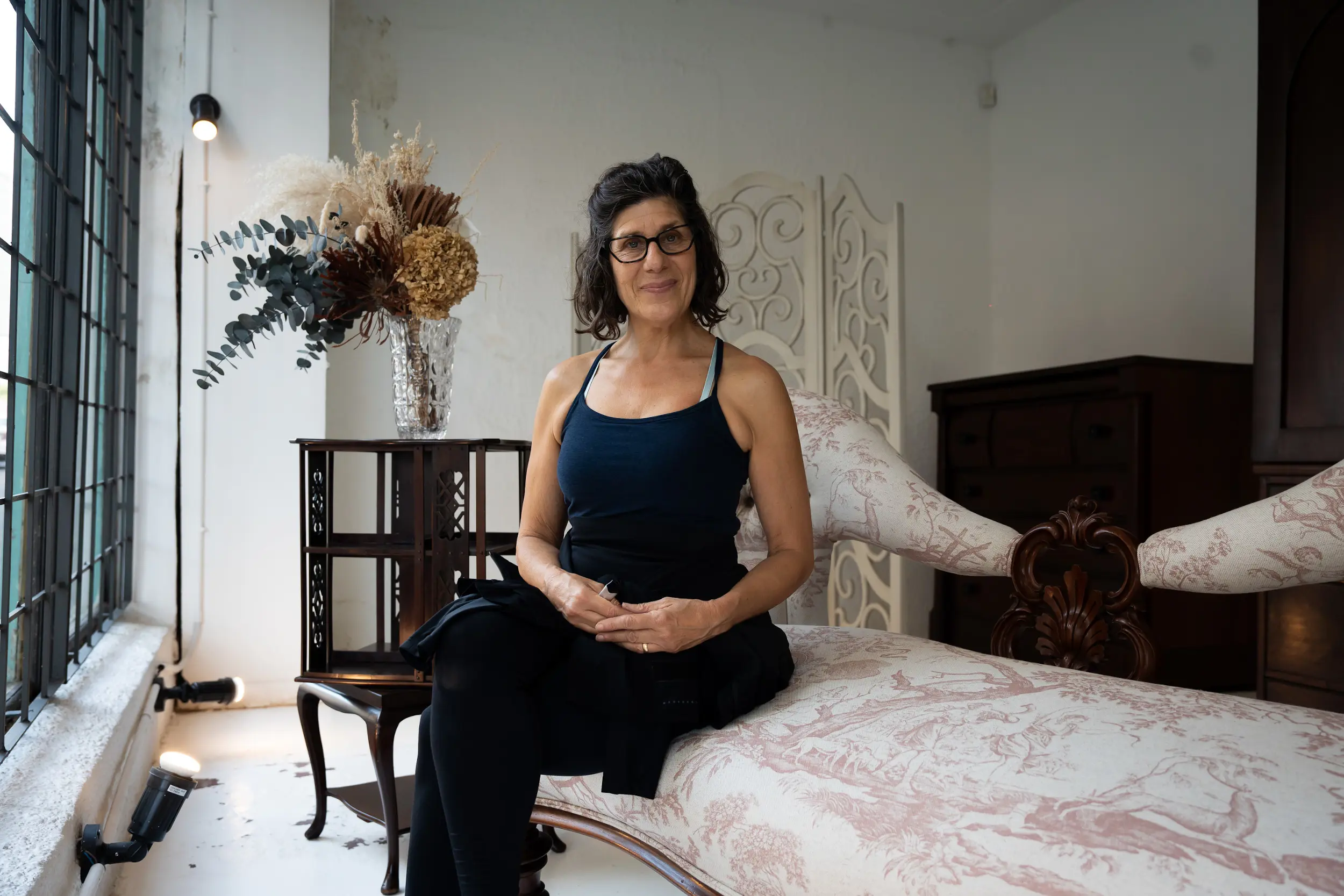
Carmen Bamberger, the owner of Miller's Antiques in Johannesburg. Picture: Xanderleigh Dookey/Eyewitness News
The Bambergers say while there are total collapses in pockets of the city, there are some very high-functioning areas.
"It's where people get together and contribute towards a security company and an improvement district and where things are kept clean because we cannot rely on the services we paying for to the city, so you have to do it yourself," added Saul.
DO IT YOURSELF
Deciding to take matters into their own hands is what some in Benoni have resorted to doing. The rapid deterioration has been an eyesore, with a refuse problem emerging.
The founder of Clean Projects, Alison Etherington, says her initiative to clean the town was founded out of a difficult decision that her family was faced with.
"Clean projects started as a cry for my husband. We either immigrate or we’ve got to clean up this mess, we can’t keep driving through chaos and disorder. We based our project on the principle of the broken window theory, which states if there is one broken window, the whole town slowly falls into neglect."
